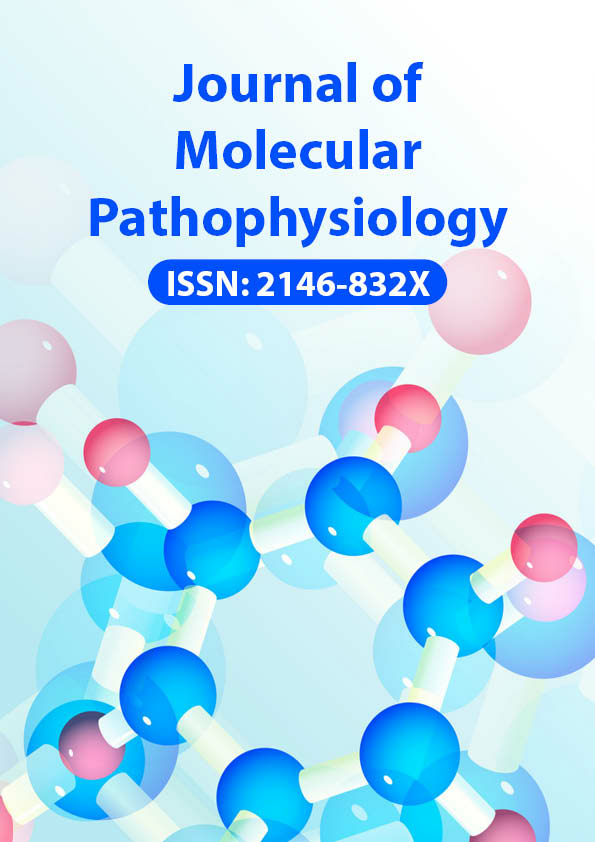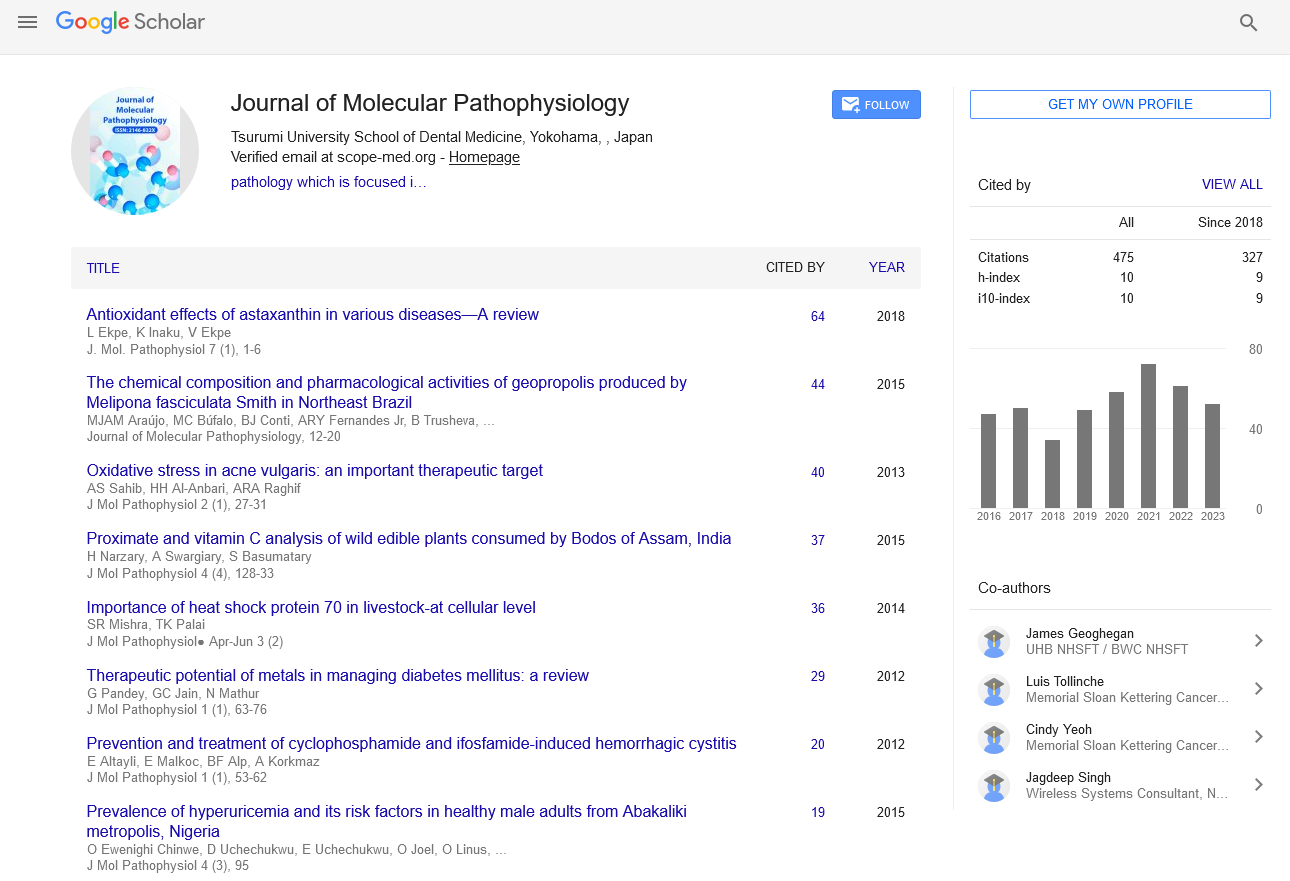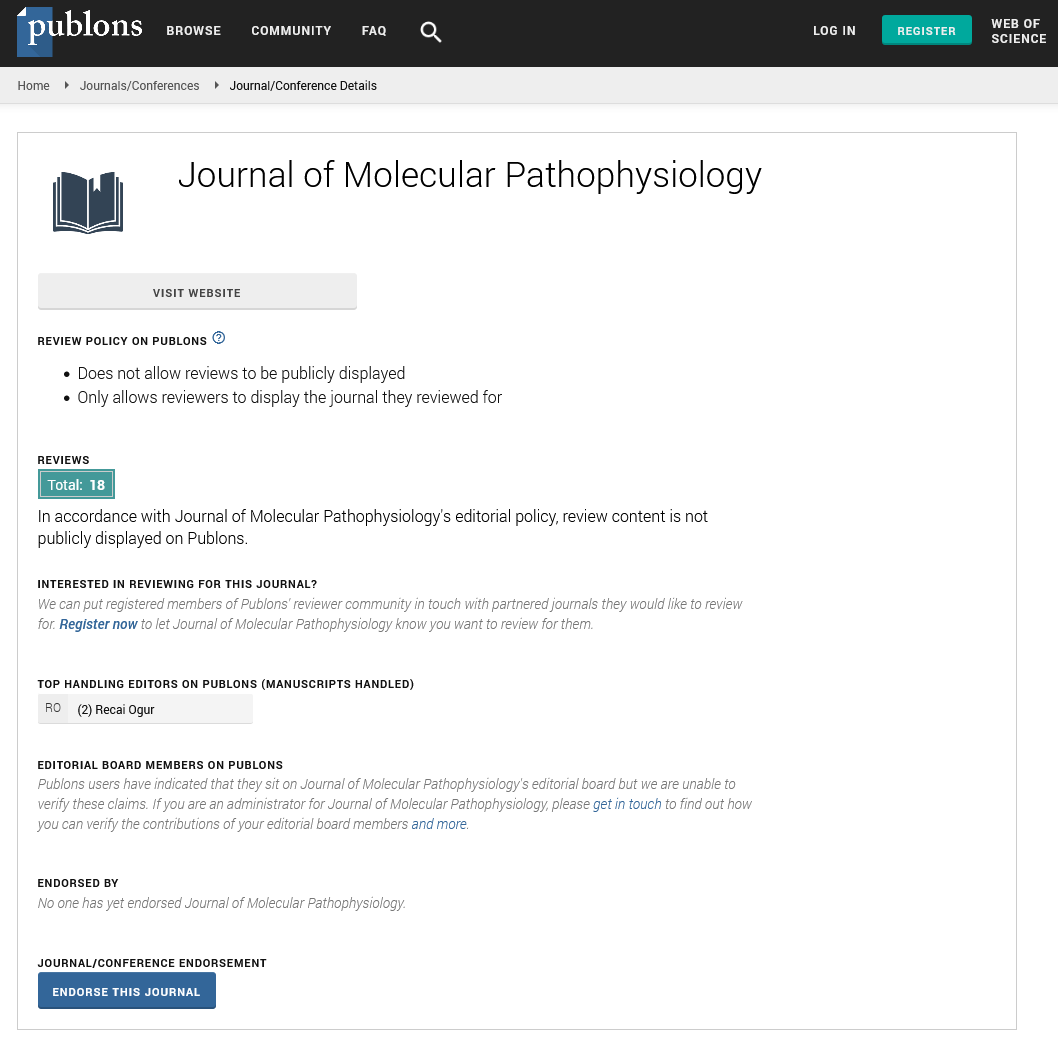Commentary - Journal of Molecular Pathophysiology (2024)
Autoantibodies as Modulators of Disease Outcomes and Clinical Phenotypes in Autoimmune Diseases
James Paul*James Paul, Department of Pathology, Heidelberg University, Heidelberg, Germany, Email: pauljames85@yahoo.com
Received: 12-Aug-2024, Manuscript No. JMOLPAT-24-147012; Editor assigned: 15-Aug-2024, Pre QC No. JMOLPAT-24-147012 (PQ); Reviewed: 30-Aug-2024, QC No. JMOLPAT-24-147012; Revised: 06-Sep-2024, Manuscript No. JMOLPAT-24-147012 (R); Published: 13-Sep-2024
About the Study
Autoantibodies are antibodies produced by the immune system that mistakenly target and attack the body’s own tissues. They are implicated in a wide range of diseases, particularly autoimmune diseases, where the immune system loses the ability to distinguish between self and non-self-molecules. The presence of autoantibodies can significantly influence disease progression, impacting various aspects such as the initiation of disease, its chronicity, severity, and clinical manifestations. Their role in disease progression is difficult, involving complex interactions with cellular components, immune cells, and signaling pathways, which ultimately determine the course and outcome of the disease.
At the molecular level, autoantibodies can bind to self-antigens, forming immune complexes that can trigger inflammatory responses. These complexes can accumulate in different tissues, leading to complement activation and choosing of inflammatory cells such as neutrophils and macrophages. This inflammatory cascade can cause tissue damage, continuing a cycle of injury and immune activation. Moreover, autoantibodies can directly damage cells by binding to surface antigens and triggering complement-mediated lysis or antibody-dependent cellular cytotoxicity, leading to further tissue destruction and contributing to disease progression. Autoantibodies also play an important role in modulating the immune response by interacting with different immune cells. For instance, they can bind to antigens on the surface of antigen-presenting cells, enhancing their presentation to T cells and leading to the activation of auto reactive T cells. These T cells, in turn, produce pro-inflammatory cytokines that further stimulate B cells to produce more autoantibodies, creating a feedback loop that drives disease progression. Additionally, the interaction between autoantibodies and B cells can lead to the formation of ectopic germinal centers within inflamed tissues, promoting the local production of autoantibodies and perpetuating the autoimmune response.
Furthermore, autoantibodies can interfere with normal physiological functions by blocking or activating receptors, enzymes, or other proteins. For example, some autoantibodies can copy the action of hormones or neurotransmitters, leading to inappropriate activation or inhibition of signaling pathways. This can result in a wide range of clinical manifestations, depending on the target of the autoantibody and the affected tissues. By interfering with normal cell signaling and function, autoantibodies can exacerbate disease symptoms, contribute to complications, and drive disease progression. In addition to their direct effects on tissues and immune cells, autoantibodies can also play a role in disease progression by altering the regulation of immune tolerance. Under normal conditions, mechanisms such as clonal deletion, anergy, and regulatory T cells help maintain immune tolerance to self-antigens. However, in the presence of autoantibodies, these mechanisms can be disrupted. For example, autoantibodies can bind to and alter the function of regulatory proteins involved in immune tolerance, such as checkpoint inhibitors, leading to a breakdown of self-tolerance and promoting the expansion of auto reactive immune cells. This loss of capacity may cause the immune system to become chronically activated and produce autoantibodies continuously, which will eventually increase the progression of the disease.
The role of autoantibodies in disease progression is not limited to direct tissue damage or immune modulation, they can also contribute to the development of comorbidities and secondary complications. For instance, chronic inflammation driven by autoantibodies can lead to fibrosis, a process characterized by excessive deposition of extracellular matrix components, resulting in tissue remodeling and organ dysfunction. Fibrosis is a common feature in many autoimmune diseases and is often associated with poor prognosis. Additionally, the chronic presence of autoantibodies and immune complexes can contribute to vascular damage, increasing the risk of cardiovascular disease, which is a significant cause of morbidity and mortality in patients with autoimmune disorders.







